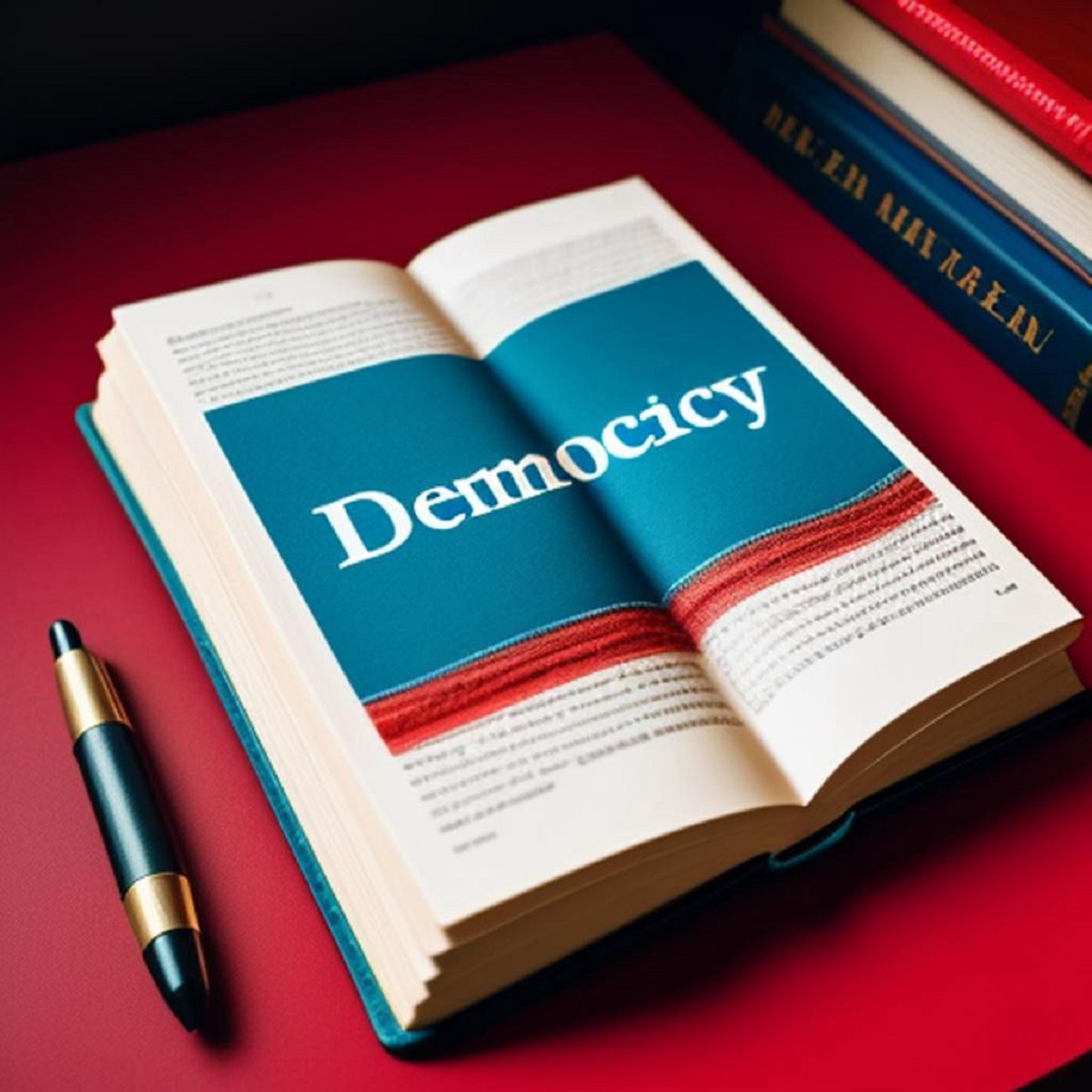
Democracy beyond the constraints of majority rule towards Inclusive governance
In a world increasingly marked by polarization, extremism, and ongoing conflicts, such as the wars in the Middle East and the actions of authoritarian leaders like the tyrant in Syria, portraying themselves as representatives of the majority, the essence of democracy is being rigorously tested. Extreme ideological groups are using democratic principles to cloak their extremism, hiding behind the concept that the majority has the right to rule over the minority. In such turbulent times, it is essential to revisit and reaffirm the foundational principles of democracy.
Democracy, at its core, is a system of government where power is vested in the hands of the people. It is a political framework that allows for the expression and application of the popular will through free and fair elections, with a fundamental emphasis on equal rights and participation for all citizens. The word itself, derived from the Greek ‘dēmokratía’, literally means ‘rule by the people’. Yet, the beauty and complexity of democracy go far beyond this simple translation.
A common misconception about democracy is that it is synonymous with the rule of the majority. This view suggests that as long as the decision of the majority is respected, the principles of democracy are upheld. While majority rule is a crucial aspect of democratic decision-making, equating democracy solely with majority rule oversimplifies and, indeed, misrepresents the multifaceted nature of a truly democratic society.
Development of Democracy
Democracy, as a distinct form of government, first emerged in ancient Greece, particularly in the city-state of Athens around the 5th century BCE. Athenian democracy was a direct form, where citizens (excluding women, slaves, and non-citizens) participated in decision-making assemblies. This early model, although limited in inclusivity by modern standards, laid the groundwork for the concept of rule by the people. It introduced foundational democratic principles such as equality before the law and the idea that citizens have a stake and a voice in governance.
Fast forward to the Enlightenment age, which was a pivotal period in the evolution of democratic thought. Philosophers like John Locke, Montesquieu, and Jean-Jacques Rousseau argued for concepts such as the social contract, separation of powers, and popular sovereignty. These ideas were revolutionary, emphasizing that legitimate government derives from the consent of the governed and must respect individual rights.
The 19th and 20th centuries saw dramatic expansions in democratic principles. Key moments include the abolition of slavery, the extension of suffrage to women, and the dismantling of colonial empires. These developments marked significant shifts from the concept of democracy as majority rule to a more inclusive system that recognized the rights and voices of previously marginalized groups.
In the contemporary era, democracy faces new challenges and opportunities. The rise of the internet and social media, the increasing importance of international human rights norms, and the growing recognition of the rights of diverse groups (such as LGBTQ+ communities and indigenous peoples) are reshaping what democracy means and how it functions. The focus has shifted from simply majority rule to a more complex and inclusive understanding that seeks to balance majority will with minority rights and global norms.
Majority Rule vs. Minority Rights
Majority rule is a fundamental principle of democratic decision-making. It posits that the preferences of more than half of the members of a community have the power to make decisions that affect the entire group. This principle is rooted in the idea of equality and fairness – each member’s vote carries equal weight, and thus the decision of the majority reflects the collective will. It’s a practical solution to decision-making in large groups and forms the basis of electoral systems in democracies worldwide.
While majority rule is crucial for democracy, it’s not sufficient on its own. Minority rights are equally essential in a democratic framework to ensure that the majority doesn’t become tyrannical or oppressive. These rights protect the interests of smaller groups and individuals from being completely overridden or ignored by the majority. This balance is vital for maintaining social harmony, promoting diversity, and ensuring that democracy does not devolve into a “tyranny of the majority.”
The Role of Tolerance in Democracy
Tolerance is not just a moral virtue but a necessary component for the functioning of a healthy democracy. Democracies thrive on dialogue, debate, and the exchange of ideas. Tolerance fosters this environment by encouraging open and respectful discourse. It helps in bridging societal divides and promotes mutual understanding among diverse groups. In a tolerant democracy, citizens are more likely to engage in constructive political participation and less likely to resort to violence or discrimination against those with whom they disagree.
Therefore, democracies should tolerate a wide range of views, including those that challenge the status quo or mainstream opinion. This tolerance is vital for innovation, social progress, and the protection of minority viewpoints. However, democracies often face a ‘tolerance paradox,’ where the very tolerance that is essential for democracy’s functioning can be exploited to undermine it. For instance, extremist groups might use the freedom of speech to spread hate speech or propaganda against democratic institutions. Democracies must navigate this paradox by creating legal and ethical frameworks that distinguish between acceptable dissent and harmful rhetoric or actions. Democratic societies need not tolerate ideologies that promote hatred, violence, or discrimination against others based on any inherent characteristics.
Personal Freedoms and Democratic Values
Personal freedoms, such as freedom of religion and expression, are the bedrock of democratic societies. These freedoms are vital for the development of an individual’s personality and the expression of human creativity and intellect. They allow for the cultivation of a diverse and vibrant society where different viewpoints and lifestyles can coexist and enrich the communal tapestry.
Democratic societies face the ongoing challenge of balancing the majority’s wishes with the protection of individual rights and freedoms. This balance is not just a legal issue but a cultural and ethical one, requiring constant vigilance and adjustment. The aim is to create a society where majority rule does not translate into the suppression of minority views or lifestyles, and where personal freedoms are respected and protected.
In concluding this exploration of democracy, I hope I have revealed that it is far more complicated than mere majority rule. Democracy, in its truest form, is an ever-evolving interplay of majority decision-making, minority rights, personal freedoms, and tolerance. The challenges we face today, from polarization and extremism to the misuse of democratic principles for undemocratic ends, underscore the necessity of an informed approach to democratic governance.
Ramzi Abou Ismail is a political psychologist and researcher at the University of Kent.








